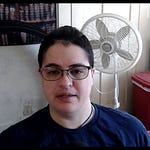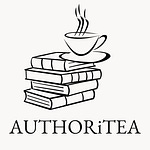Choosing a professional to work with is a stressful part of the process, and it can often cause anxiety if you don’t know what to look for. Fortunately, finding someone reliable is easier than you think.
Hiring a professional editor is expensive. I’m not going to sugar coat that. It’s pricey, and if you don’t know what you’re looking for, it can be incredibly stressful. Worse, there are a lot of sharks in our water. Knowing who to trust and whether you’re paying what you should be is even harder.
I’ve talked about why editors price what we do in other blogs, but this week I wanted to talk specifically about how to find an editor who suits your needs and goals specifically. This is because I often see a mismatch between authors and editors due to authors not knowing what they need to ask! A good editor will ask questions about the authors’ projects, but if you know in advance what you’re looking for, you will be able to have your requirements met far faster than you might otherwise.
There are a few steps, so let’s get to it!
What Kind Of Editing Do You Need?
The first thing that surprises newbie authors is that there are in fact at minimum four different kinds of editing (there are other kinds of work too, but we’re going to focus on the most common categories). These categories are: Developmental, Line, Copy, and Proofreading. While I could get really deep into each of these topics, as there is a lot to be explored here, I’m going to stick to a light overview for each of them to not bog this down.
Developmental
Developmental editing is the broad strokes phase of editing. It includes things like plot, pacing, story structure, character development, and world building. This kind of editing often requires the most significant rewrites (since you may be moving, removing, or writing entirely new chapters to accommodate the changes). While more experienced authors rarely need developmental editing, newbies should concentrate on it if you can only have one pass done — think of it like a writing course personalized to just you.
Line
This type of editing focuses on the prose itself. Here’s where you’ll see editors talking about adverbs (which aren’t all bad), passive voice (…by zombies) and other such things you usually associate with editing. This pass is dedicated to cleaning up all those sorts of difficulties and also identifying things like sentence structures that are overused, crutch words, and all that sort of thing.
Copy
Here is what most people think of when they think of “editing.” It’s fixing punctuation, spelling, consistency, and things like that. Typically this involves a “style sheet” which is a document that lists out things like the proper spelling of words, what type of punctuation is used (whether you use the ellipsis character or three separate periods, etc.), and other such small details. The overall goal of copy editing is internal consistency. Being “correct” is often a back seat to being “consistent.” So long as it isn’t incorrect in a way that will confuse readers or harm your ability to get your point across.
Proof
This is not copy editing, as many people assume. Proofreading is, in fact, a review of the formatting right before something goes to print. It’s a chance for someone to ensure the formatter didn’t introduce errors or also to identify things like chapter heading issues, font changes where there ought not be, and so on. It is typically performed on the final, formatted version of the book (so PDF or ebook, likely) and does not look at the writing itself but instead how it lies on the page.
These four types of editing are not always needed by every single author, and while a traditional publisher will go through all four types (in separate rounds, never all at once) indies may not have the ability to finance this because editing is not an inexpensive prospect.
If you can only choose one or two passes, you should look for the areas you need the most help with. If you’re brand new to writing and can only select one pass, I’d go with developmental because most brand new authors struggle with structure. I would also advocate a good line edit (because most line editors also touch up the copy while they are in there).
Where To Find An Editor You Can Trust
The first thing I am going to say is that any editor who approaches you unsolicited is either incredibly green or they are a scammer. If you post in an editorial group that you’re looking for an editor, obviously the responses are not exclusively scammers. However, those Instagram and LinkedIn messages and Facebook messages you’re drowning in from people who want to “help” you? Scammers, the lot of them. Don’t give them the time of day. Any editor worth their salt isn’t trawling around trying to grab up authors and market to them or randomly friending them on social media.
Instead, you can find reliable editors in a few places: editing organization websites (CIEP, EFA, Editors Canada, ACES, etc.), social media posts or advertising made by the editor (like my TikTok, YouTube, and this podcast), referrals from other authors, their website on Google, meeting them at a writing event, finding them in an editorial social space (such as the EAE Ad Space group on Facebook), and so on. While you certainly can find legitimate editors on websites like Fiverr, it’s risky.
Secondly, do not look for the cheapest price point. If you find someone who offers to edit your 100,000-word book for $200, you are throwing your money down a well. Also, most editors will not offer a flat fee per book, and many of us do not list our fees on our website. Just like a car mechanic doesn’t list their fees on the website, either. Editors are book mechanics, and sometimes when we look under the hood we find issues. Expensive issues. Many editors will offer a free or paid sample edit to get an idea of the scope of the edit so they can draft an adequate estimate, and those sample edits are often a flat rate, but they are a fixed number of pages (or words) and very specifically formatted.
Vetting Your Editor
Once you’ve identified an editor you like, vet them. Ask them for a sample edit (if they provide them, not everyone does), ask them questions about what they do, look at their website for any credentials they possess, and ask around. Our industry is quite small, and there’s a good chance we have heard of one another. It’s never considered crass to double check with other authors.
If you decide to move forward with that editor, you may also have a lawyer double-check the contract they send you for anything problematic. Editing contracts are usually very straightforward things and not extremely long or convoluted (generally—there are circumstances where they can be, though). You can also check their rates against the EFA Rates sheet to see if they’re dramatically higher or lower than what’s on there.
I do want to say, though, that the EFA rates sheet is not the be-all and end-all for rates. There are many very good editors who work outside that price range both higher and lower. However, it’s a good idea for a rough estimate of what you might be looking at. It’s also free to the public and has an excellent built-in calculator to help you get an idea of what you might be needing to budget.
Assessment of Expertise
This one is a little sticky. I am an expert in some genres, but I can work outside the genres I am expert in for certain projects and subjects. For example, I worked with a woman doing a memoir on her autistic son’s journey through life. Seeing as I am autistic, I was able to help her with that book in ways an allistic editor could not have. While memoir is not my usual area of specialty, I was the correct editor for that job. I was, however, upfront with her that memoir is not my primary sphere, and she wanted to work with me specifically. I accepted.
Some editors will be deeply specialized in certain genres while others are more jack-of-all-trades. Some editors are experts in a particular kind of editing while others do multiple types. Yet others (like myself) are experts with a specific kind of clientele. Yet more will have unique qualifications that may make them perfect for your book (such as my autism making me a good editorial partner for that memoir).
An editor doesn’t have to be an expert in your genre to do a copy edit on your book, for example. A comma going in the right spot doesn’t really change much between horror and romance. Whether or not you use too many adverbs doesn’t really change much between urban fantasy and memoir. The place you’ll most often see a deeper need for genre expertise is in developmental editing where understanding some of the unique needs of the genre can help shape the storytelling advice provided.
Whatever your specific needs are, however, feel free to ask your editor about it. For example, one of the things I provide clients is that I am an expert in real-world sword fighting. I have studied Japanese sword styles as well as European fencing. More than just academically, I have held and used those weapons, so I understand them better than most. I have worn the armor, wielded the blades, and also been cut by them. (I nearly amputated a finger with a katana once by accident. Not a fun day.) Furthermore, I’ve done archery, axe and knife and spear throwing, group melee, and more. If you haven’t pegged it by now—yes, I’m a SCAdian. That experience gives me a really powerful understanding of what those things are like to do, and that in turn allows me to provide better real-world understanding to authors who may not have ever held a sword.
I could wax on about my own expertise in various areas, but you get the point here: not all expertise is just literary. Sometimes an editor has practical experience in something that provides them insight into your work that another editor might not have. That might help you select one who is going to provide your unique book the touch it needs to stand out.
Typical Editing Practices
There are a few common editorial practices that you should be aware of going in. These practices are not universal, so don’t assume they are major red flags if someone doesn’t have these, though. If you’re unsure, ask the editor you’re working with for more information about why they do or do not use these things.
Initial deposits for start of work are common for both holding a slot for future editing as well as for ensuring clients are prepared for more immediate start dates. (10%-50% depending on the job)
You will not receive your edits until you have paid the full balance of the job
On average, editors will not update you every day as to their progress; they might update once a week or not at all
Most editing is done with “tracked changes” in Microsoft Word or in Google Docs—most editors dramatically prefer Microsoft Word (proofreading is an exception to this)
Editors most often use contracts, but some are content with an email chain describing exactly what the work is going to be
Editors cannot guarantee 100% error catching; that is not feasible — we shoot for around 98% when possible, though
Most kinds of editing come with an editorial letter; some may come with a style sheet included
For developmental editing, the editorial letter is the bulk of the edit; there will likely be few to no in-line changes
Many editors will include in their contract whether or not they use any AI assistance in their editing and exactly how they utilize it
Many editors will expect authors to be up front about how much AI is used in their manuscript (if any) due to copyright concerns
Editors will not steal your book
Final Thoughts
When looking for an editor, you are also looking for a human being you can connect with. Beyond the expertise and skill sets and everything, do you like the person you’re going to be working with? Are they someone you really want to get to know? Does their sense of humor jive with yours? (I leave snarky comments for my authors sometimes in order to make them laugh.) Do you feel good about this person and their ability to understand you and your book’s needs?
All the professional qualifications in the world won’t matter for you if you and your editor just cannot get along as people. They might be, on paper, the exact, perfect editor for you, but if you learn their values and yours do not mesh, it doesn’t matter how good they are on paper. You will not click.
Editing is an intimate experience. You are inviting someone into a sliver of your soul to poke around. That requires vulnerability, and it can be very intimidating. Beyond the cost, having someone red-line pieces of yourself is a challenging thing to experience. Whoever you choose, make sure it’s someone you think is going to work well for you. Someone who cares about you, your book, and about the work they are doing. Preferably someone you feel confident you could take out for a drink (alcoholic or non) and enjoy a conversation with. That connection is of vital importance to establishing a long, healthy relationship that will support your writing career beyond just one book. After all, very few of us dream of writing just one book, right?










